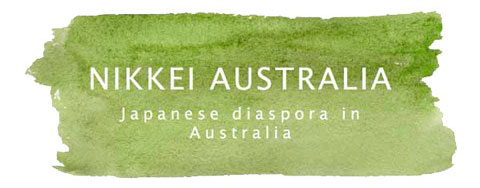By Dr Rebecca Hausler
On 16 October 2022, the field of Japanese studies lost one of its most passionate and loved scholars, Professor Carol Hayes, formerly of the Australian National University (ANU). It is especially tragic that the great mind of Carol Hayes, the same mind that produced numerous publications on Japanese language and cultural and literary studies, succumbed to an aggressive brain tumour approximately a year after she fell ill. She received the diagnosis only a week after she was promoted to professor at ANU after a lifetime of work in the field of Japanese studies.
In this opinion piece on behalf of Nikkei Australia, I consider how the landscape of Japanese studies in Australia has changed in the year since we lost the larger-than-life Professor Carol Hayes, focusing on what made her such a brilliant and beloved force in the teaching and research space so that we can honour her memory by living and teaching well.

As Carol noted in the special Japan seminar series held in 2022 celebrating her life and work, one of her favourite places in Canberra is the Tidbinbilla Nature Reserve. On one of the many winding and beautiful pathways that snake through the bushland surrounding Canberra on Ngunnawal Country, a plaque reads: ‘Our Future, Our Journey’. Although Carol thought of this as a personal mantra in the months following her diagnosis, I suggest that this sentiment was already embedded in Carol’s life. This is evidenced by the way she sought to advance Japanese studies through meaningful collaboration, support and championing of students, early career researchers, and colleagues within the field. A focus on the future was always at the forefront of Carol’s mind.
Carol’s ardour for Japanese studies and its future in Australia, given the changing global paradigm, saw her dedicate herself to keeping Japanese studies relevant, engaging, and meaningful to future scholars and teachers within the field. Carol was at the vanguard of employing new interactive technologies, including digital storytelling in the Japanese language classroom to challenge and engage students to communicate in a more meaningful way than the traditional rote learning from outdated textbooks. She realised that in order to get students engaged in language learning, it was necessary to have them apply it to areas of their own life they were passionate about. This approach meant students became excited about explaining their interests, goals, and life stories in more meaningful ways.
Carol’s passion was Japan. This, combined with her infectious sense of humour, authentic demeanour, and genuine interest in others stimulated her students and colleagues in the field. She joyfully taught her students, and was excited to collaborate with early career researchers, rather than seeing it as an obligation. She ensured that those around her thrived when she did and she strove to improve systems. This is what made Carol an exceptional educator, which in turn made those around her exceptional as well. She gleefully shared with others to make Japanese studies a more inclusive and inspiring place.

As a long-time member and a serving executive member of the Japanese Studies Association of Australia (JSAA) since 2015, it was fitting that a special round-table session to honour Carol’s memory was held during the recent joint JSAA-International Conference for the Network of Translingual Japanese event at University of New South Wales. It was wonderful that Carol’s husband, Mark Taylor, as well as her brother Geoff were able to attend the event to see and hear how much Carol touched the hearts of all that she worked alongside. In speaking to Mark, we both agreed that Carol’s generosity of spirit was what made her so special. She gave without asking in return, rather it was seeing her colleagues, mentees, and students shine that was her reward.
The past few years have been strange and difficult. The impacts of COVID-19, among a litany of other major world events, have created a stilted learning and academic environment – a ‘new normal’ to which we are still adjusting. Adding to this prolonged sense of unease is not seeing the familiar – and ever present – face of Carol Hayes on campus or at conferences and workshops. She imbued any space with an exuberant lightness and gaiety. Her absence from the Japanese studies sphere now weighs heavily. How do we reckon with the palpable gap left in our academic and personal space?

As anyone who knew Carol would undoubtably say, she was a source of joy and knowledge in any setting, providing an excitable sense of camaraderie. She sought to push the boundaries and improve the status quo wherever possible. She platformed and mentored many around her, making Japanese studies a richer space in which we could all collectively thrive. Out of respect for Carol and to keep her spirit alive in the field, we should – in our own way – carry ourselves and perform our work with the same delight and passion that she did. Share our knowledge and successes freely with those around us; make our journey into the future as a collective, with strength, pride, and unity, so that we leave this place better than when we arrived.
Thank you for everything you did, Carol, and may your lessons live on.
Dr Rebecca Hausler is an academic at the University of Queensland.
All photos supplied by Mark Taylor.






Wonderful tribute.
Still sorely missed. <3